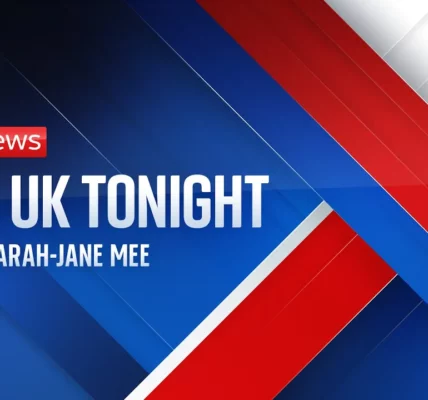A Dark Day for America: Analyzing the Recent Verdict Against Donald Trump

This article explores the ramifications of the recent verdict against Donald Trump, examining the political divide it exacerbates and the potential impact on upcoming elections. As the nation grapples with this decision, we delve deeper into the reactions and the implications for both Donald Trump and the American political landscape.
Introduction
The recent verdict against Donald Trump has been described by many as a “dark day for our country.” This outcome is not merely a legal decision but a reflection of the deep-rooted political and social divisions that characterize contemporary America. The jury’s composition in New York, perceived to be unfavorable to Trump, raises questions about the fairness of trials in politically charged environments. As we unpack the implications of this verdict, it becomes vital to analyze how it will affect Trump’s supporters, the Republican Party at large, and the upcoming presidential elections.
Reactions to the Verdict
In the wake of the verdict, Donald Trump’s public demeanor appears defiant, as he has been observed waving to crowds in New York. However, behind the scenes, reports suggest a different narrative. Let’s explore the complexity of Trump’s reactions.
Public Response vs. Private Sentiment
While Trump projects confidence in front of his supporters, privately he is said to be angry and frustrated. This duality reflects a common tactic among politicians who leverage public sentiment for personal gain. Here are key elements of Trump’s response:
- Describing the verdict as a “disgrace.”
- Feeling targeted by what he perceives as a politically motivated attack.
- Recognizing the potential to use this situation to reinforce his brand and campaign narrative.
The Political Divide and Its Implications
The verdict is likely to deepen the political divide in America. As public opinion is polarized, this situation raises significant questions about the future of the Republican Party and its relationship with Trump.
Impact on Republican Unity
Unlike previous elections, the Republican Party today exhibits a strong backing for Trump. Despite some dissenting voices, the majority of party members have rallied around him. This section examines the dynamics within the party:
- Increased endorsements compared to the 2016 election cycle.
- The potential for a “Civil War” within the party as moderates and establishment figures navigate their loyalties.
- The role of grassroots support and its influence on party cohesion.
Voter Sentiment Analysis
As we analyze the polling data post-verdict, it’s crucial to observe how different voter segments react:
- Republican Voters: Likely to remain loyal to Trump, viewing the verdict as politically motivated.
- Moderates and Independents: Their opinions will be pivotal in determining the outcome of the next election. Understanding their stance is essential.
- Democratic Response: How the Democratic Party capitalizes on this situation could also influence their electoral strategy.
Electoral Strategies Moving Forward
In light of the verdict, both Trump and the opposing parties will need to recalibrate their electoral strategies as they prepare for the upcoming elections.
Trump’s Campaign Tactics
Trump’s ability to turn challenges into advantages is a hallmark of his political persona. This situation is no different, as he is likely to employ several strategies:
- Framing the verdict as part of a “rigged system” narrative.
- Utilizing the trial’s outcome to mobilize his base and galvanize support.
- Emphasizing his policy successes to appeal to moderate voters.
Democratic Counterstrategies
The Democratic Party will need to craft a counter-narrative that addresses the concerns of moderate voters while highlighting Trump’s controversial actions. Key areas they may focus on include:
- Promoting unity and bipartisanship.
- Addressing economic concerns that resonate with voters across the spectrum.
- Focusing on justice and accountability as core themes in their campaign.
Conclusion
The recent verdict against Donald Trump is more than a legal decision; it is a pivotal moment that could reshape the political landscape in America. As the Republican Party solidifies its support for Trump, and as voters—particularly moderates and independents—begin to form their opinions, the implications for the 2024 presidential election are profound. It is crucial for both Trump and his opponents to navigate this complex environment carefully. The coming months will be telling, and as this political drama unfolds, staying informed will be essential. For those interested in the future of American politics, continuing to monitor these developments will be key.
“`




